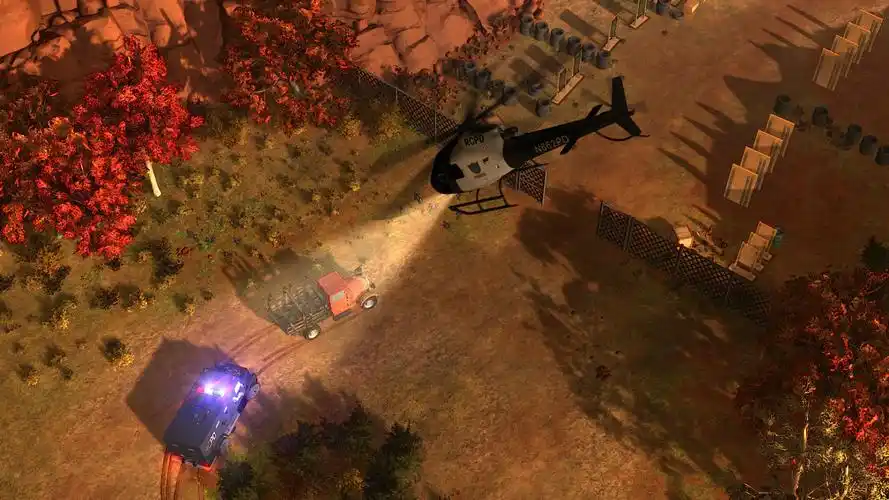Beyond the Headlines: The Complete Guide to Deep Game News Literacy
In the fast-paced, multi-billion dollar world of video games, staying informed is a challenge. A constant deluge of trailers, press releases, patch notes, and hot takes floods our screens daily. For the modern gamer, simply consuming this content is no longer enough. True empowerment comes from developing deep game news literacy—the critical ability to not just read gaming news, but to analyze, contextualize, and evaluate it. This guide provides the tools to navigate the complex gaming information ecosystem with confidence and discernment.
Deconstructing the Source: Who is Telling the Story?
The first step to news literacy is understanding the messenger. Every outlet, influencer, and content creator operates with inherent biases and motivations. Ask yourself:
- Primary vs. Secondary Source: Are you reading a developer's official patch notes (primary) or a journalist's summary and analysis of them (secondary)? Both are valuable, but recognizing the difference is key.
- Outlet Motivation: Is the platform funded by ads, subscriptions, or Patreon? Ad-driven models may prioritize clickbait headlines to generate traffic, while subscriber-funded models might focus on deeper, more nuanced analysis to retain a dedicated audience.
- Individual Bias: Every journalist and content creator has personal preferences. A reviewer who predominantly enjoys hardcore strategy games will have a different perspective on a new casual mobile title than a reviewer who specializes in that genre. Learn to identify these leanings.
Beyond the Hype: Analyzing the Message
Once you've scrutinized the source, it's time to dissect the content itself. The language used in games journalism is often carefully chosen, and understanding its nuances is crucial.
- Identifying Press Releases in Disguise: Many "news" articles are thinly veiled press releases. Look for overly promotional language, a lack of critical analysis, and exclusive early access granted by a publisher. These are often "sponsored content" or simply uncritical repackaging of a PR pitch.
- The "Preview" Paradox: Previews are inherently exciting but are almost always based on controlled, curated demos provided by the publisher. They are designed to showcase the game's best features. Enjoy them for what they are—a first look—not a definitive promise of quality.
- Reading Between the Lines of Reviews: Don't just look at the score. Read the entire review to understand the *why* behind the rating. A game might get an 8/10 but have a section detailing tedious end-game content. That detail is more important than the score itself for your purchasing decision.
Context is King: Situating the News
No piece of gaming news exists in a vacuum. Its true meaning is unlocked only when placed within a larger context.
- Historical Context: Is a new live-service game launching? Understanding the developer's history with post-launch support for previous titles is essential context. Is a company announcing layoffs? Look at their recent financial earnings reports.
- Industry-Wide Context: A news item about crunch culture at one studio is part of a larger, ongoing conversation about labor practices in the tech and gaming industries. Seeing the bigger picture prevents you from viewing each incident as an isolated event.
- Business Context: Recognize that games are products. A controversial monetization decision is not just a game design choice; it's a business strategy. Understanding the parent company's financial goals can often explain decisions that seem baffling from a pure player-experience perspective.
Navigating the Social Minefield
Today, breaking news often happens on social media platforms like X (Twitter), Reddit, and TikTok. While invaluable for speed, these platforms are minefields of misinformation and reactionary takes.
- Beware the Outrage Cycle: Social media thrives on strong emotions. A short clip taken out of context can spark a firestorm of outrage before the full facts are known. Practice the habit of pausing and waiting for verified information before joining the chorus.
- Verify, Then Amplify: Before sharing a shocking rumor or announcement, take 60 seconds to verify it. Is it reported by a reputable outlet? Does the original source seem legitimate? Slowing the spread of misinformation is a core responsibility of a news-literate individual.
- Identify Astroturfing: Be wary of seemingly organic grassroots support or criticism that may actually be a coordinated campaign by fans, a company, or even bad actors aiming to manipulate public perception.
Becoming an Active Participant
Deep game news literacy isn't a passive skill; it's an active practice.

- Diversify Your Diet: Consume news from a variety of sources—mainstream outlets, specialist YouTube analysts, community-driven forums, and developer direct communication. This gives you a rounded perspective.
- Engage Critically: When you discuss news online, move beyond "hype" or "hate." Ask critical questions. Cite your sources. Elevate conversations with context and analysis.
- Support Quality Journalism: If you value in-depth, ethical, and critical reporting, support it directly through subscriptions or donations. This ensures a healthy ecosystem that isn't solely reliant on click-driven metrics.
Ultimately, deep game news literacy transforms you from a mere consumer into an informed participant. It allows you to cut through the hype, understand the complex machinery of the industry you love, and form your own well-reasoned opinions. In an era of infinite information, the most powerful skill is knowing how to interpret it.


















